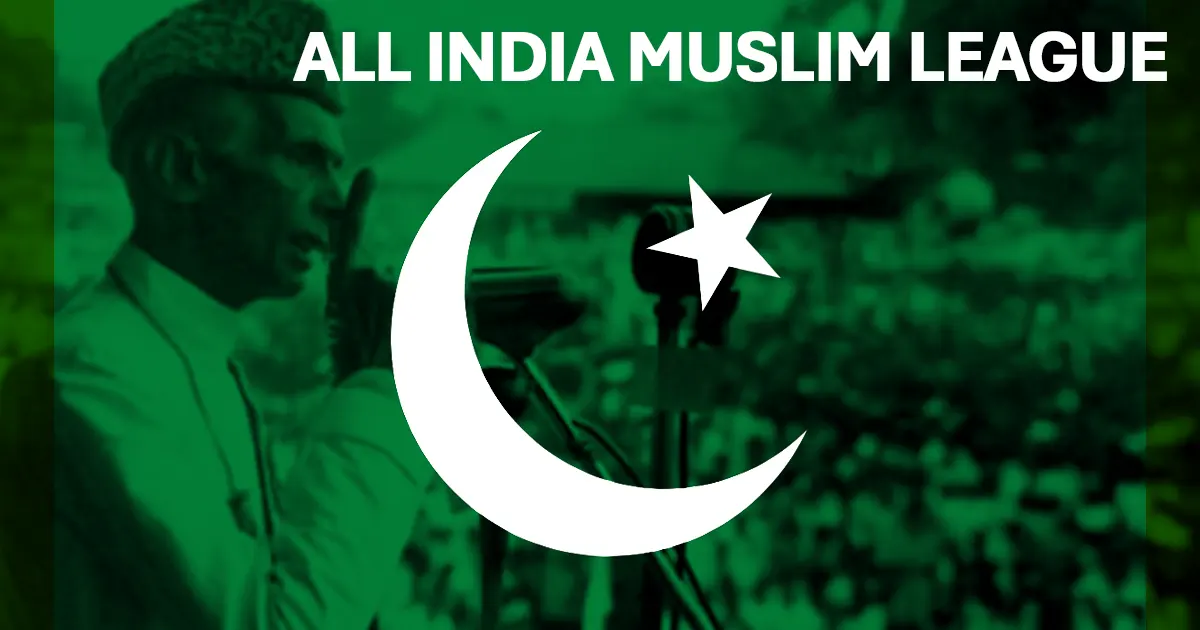GS 1 – INDIAN NATIONAL MOVEMENT

The All-India Muslim League (AIML), established 118 years ago, was founded in 1906 in Dhaka (now in Bangladesh). Its creation was influenced by the British government’s divide-and-rule strategy, which encouraged aristocratic Muslim leaders to form a political body to protect Muslim interests. Prominent leaders at its inception included the Aga Khan (its first president), the Nawab of Dhaka, Khwaja Salimullah, and Nawab Mohsin-ul-Mulk. Initially, the League represented elite Muslim men. Muhammad Ali Jinnah joined AIML in 1913, while he was also a member of the Indian National Congress.
Developments
- Strained Relations with the Government
The relationship between Muslims and the British government deteriorated after the Morley-Minto Reforms due to:
- The 1911 annulment of Bengal’s partition.
- The refusal to establish Aligarh University in 1912.
- Britain’s lack of support for Turkey during the Italian and Balkan Wars.
- Lucknow Pact (1916)
- In December 1916, the AIML, led by Muhammad Ali Jinnah, and the Congress, led by Bal Gangadhar Tilak, signed the Lucknow Pact.
- Both demanded greater constitutional reforms toward self-governance.
- The pact called for more Indian representation in legislative councils and executive bodies, and Congress agreed to separate electorates for Muslims.
- Delhi Proposals (1927)
The AIML proposed giving up separate electorates in favor of joint electorates if the following demands were met:
- Sind’s separation from the Bombay Presidency.
- Reforms in the North-West Frontier Province and Baluchistan.
- One-third Muslim representation in the Central Legislature.
- Representation based on population in Punjab and Bengal (Muslim-majority regions).
- Internal Division (1927)
- Disagreements within AIML over joint electorates caused a split:
- Jinnah League: Supported joint electorates, led by Muhammad Ali Jinnah.
- Shafi League: Opposed joint electorates, led by Sir Muhammad Shafi.
- Lahore Resolution (1940)
- In its 1940 Lahore session, AIML passed the Pakistan Resolution, seeking autonomy for Muslim-majority areas in India.
- It also demanded constitutional safeguards for Muslims and other minorities in regions where they were in the minority.
- March 23 is celebrated as Pakistan National Day to honor this resolution.




